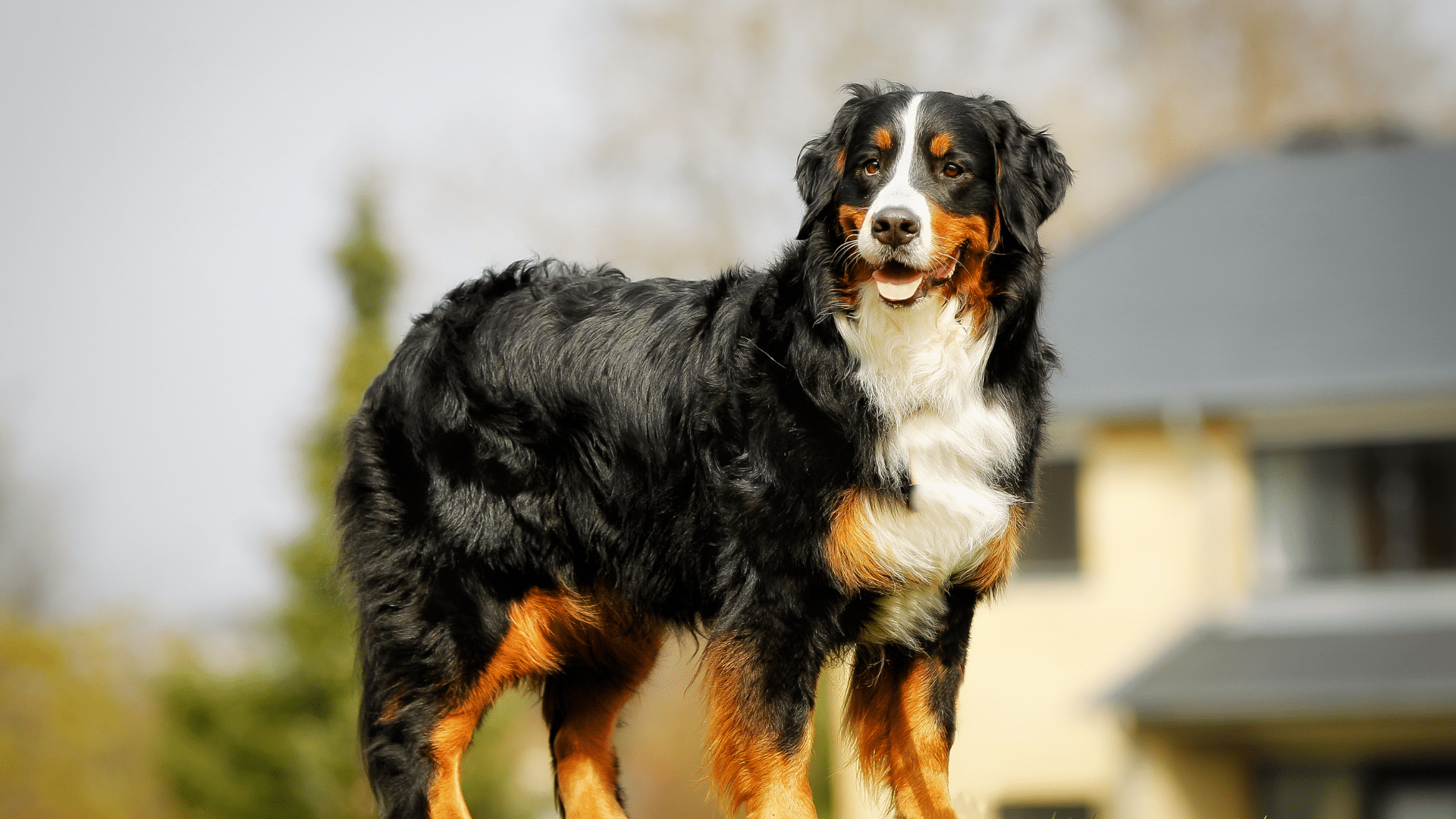Often called Berners, the Bernese Mountain Dog is a large, loving, furry, and sturdy breed. While these canines play nicely with every member of your family, there are a few caveats to consider before inviting one into your own home. Below we detail the history, temperament, appearance, health concerns, and additional interesting facts of the loyal Bernese Mountain Dog.
Bernese Mountain Dog History
For more than 2,000 years, it’s believed that Bernese Mountain Dogs worked on Swiss Alp farms where they herded livestock, pulled carts, stood watch, and provided their owners with companionship. While agricultural workers significantly decreased by 1888, the Swiss were compelled to preserve their native Berner breed. Following Word War 1, Bernese Mountain Dogs were exported to Holland, the United States, and additional countries around the world. By 1937, the AKC (American Kennel Club) officially accepted the Bernese Mountain dog as a recognized breed. Today, Berners, serve as therapy dogs, service animals, working dogs, and are overall increasing in popularity as family pets.
Temperament
While still fairly low energy when compared to most dogs, the Bernese Mountain Dog is one of the more active large breeds. Their size and strength may be challenging for children and elders, however, Berners make up for this with their calm and caring personality towards people of all ages. Berners are generally easy to train, affectionate, playful, intelligent, and commonly friendly towards strangers and other dogs. Fortunately, Bernese Mountain Dogs aren’t known to bark excessively, although, they are known to make great watchdogs as they are prone to keep watch and have a deep bark.
Appearance
These sturdy dogs display tricolor thick long silky black coats and distinctive rust & white marks on their face. Sporting a large frame between 23-28 inches tall, Berners often weigh between 70-115 pounds as a full-grown adult. Many people reportedly state that the Bernese Mountain Dog appears to be wearing a mask due to their dark brown eyes and wide smile. Because of their thick double coats, Berners should be bathed every 3 weeks and require regular brushing several times a week to control heavy shedding.
Health Concerns
Berners are generally healthy dogs and have an average lifespan of 8-10 years. Common health problems include bloat, cancer, elbow dysplasia, hip dysplasia, and eyelid issues, although responsible breeders will screen their stock beforehand to eliminate the onset of these health concerns. Bernese Mountain Dogs are notorious for gaining weight easily, so it’s recommended to not overfeed.
Interesting Facts of Bernese Mountain Dogs
- Thanks to their history with pulling carts, Berners are remarkably strong and can pull up to 10 times their own body weight.
- Bernese Mountain Dogs are one of the four varieties of Swiss Mountain Dogs.
- Kurt Russel and Goldie Hawn are fond of Berners as they pose with their dog in their yearly Christmas cards.
- Due to the small rust-colored markings over their eyes, Berners are sometimes known as Vieraugler, or Four-Eyed, dogs.
Caring for Bernese Mountain Dogs
The correct amount and type of food you should feed a Bernese Mountain Dog depends primarily on their age, weight, and activity level. Originally formulated to help performance dogs reach their maximum potential, Canine Ultimate Fitness & Health is a delicious, concentrated nutritional powder, providing a balanced blend of 55 nutrients your Berner needs for better health, increased activity, maximized performance, the prevention of age-related diseases, and ultimately a longer, healthier, and more enjoyable life.
-
Canine Ultimate Fitness & Health$36.95 – $69.10 — or subscribe and save 10%










0 Comments